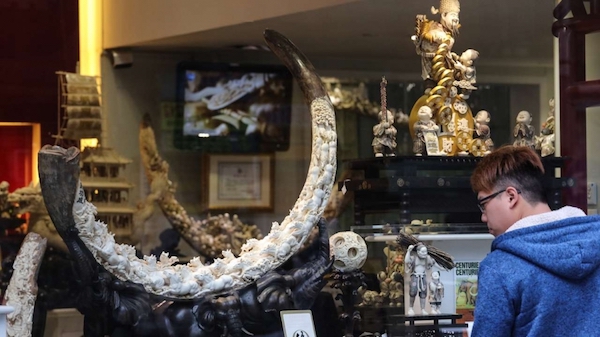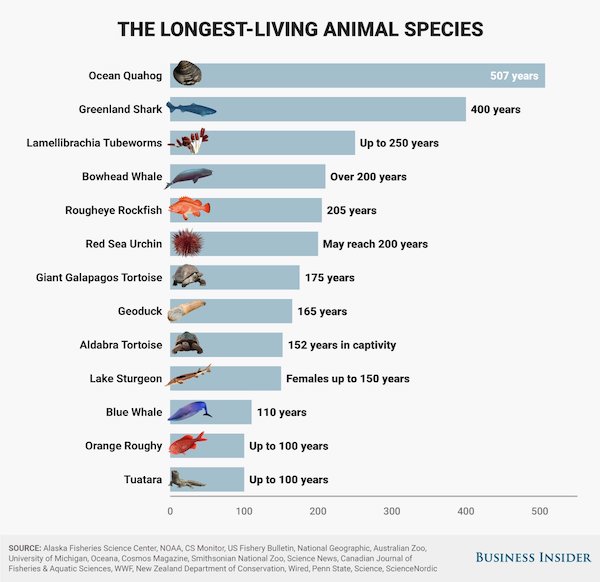
René Magritte The endearing truth 1966

No, not even that headline is true. Trump wants full denuclearization, and Kim wants full lifting of sanctions. That is complex, that takes trust, that will take a lot more talk. And that’s fine, as Trump recognizes. These meetings should become so common they don’t make the news anymore.
• Trump Says Deal With Kim Thwarted By North Korea’s Sanction Demands (R.)
U.S. President Donald Trump said on Thursday he had walked away from a nuclear deal at his summit with Kim Jong Un because of unacceptable demands from the North Korean leader to lift punishing U.S.-led sanctions. Trump said two days of talks in the Vietnamese capital Hanoi had made good progress in building relations and on the key issue of denuclearization, but it was important not to rush into a bad deal. “It was all about the sanctions,” Trump said at a news conference after the talks were cut short. “Basically, they wanted the sanctions lifted in their entirety, and we couldn’t do that.” The United Nations and the United States ratcheted up sanctions on North Korea when the reclusive state undertook a series of nuclear and ballistic missile tests in 2017, cutting off its main sources hard cash.
Both Trump and Kim left the venue of their talks, the French-colonial-era Metropole hotel, without attending a planned lunch together. “Sometimes you have to walk, and this was just one of those times,” Trump said, adding “it was a friendly walk”. Failure to reach an agreement marks a setback for Trump, a self-styled dealmaker under pressure at home over his ties to Russia and testimony from Michael Cohen, his former personal lawyer who accused him of breaking the law while in office. Trump said Cohen “lied a lot” during Congressional testimony in Washington on Wednesday, though he had told the truth when he said there had been “no collusion” with Russia.

I watched quite a bit of the ‘testimony’ yesterday, increasingly wondering: what are we watching here? Why is this show put on? It was clear from the ‘leaked’ files that Cohen had nothing, as I said yesterday morning. In the Q&A session he had way less than nothing. So yeah, let’s go with the most absurd headline of the bunch.
• Michael Cohen Predicts Revolution If Trump Loses In 2020 (RT)
Trump consigliere turned federal informant Michael Cohen shared his fear that there will “never be a peaceful transition of power” if his former boss loses the 2020 election during a congressional hearing some called a ‘circus.’ “You don’t know him! I do!” Cohen insisted plaintively during his testimony before the Oversight Committee of the House of Representatives, before predicting Trump would refuse to step down even if he was defeated in 2020. “He is a racist. He is a con man. He is a cheat,” declared Cohen, who pleaded guilty to charges he lied to Congress regarding the special counsel’s ongoing ‘Russiagate’ probe in November, months after pleading guilty to campaign finance violations and tax fraud. He has been busily feeding information to the various Trump probes ever since.
Despite promising big things – proof that Trump had instructed him to commit crimes, evidence of Trump’s racism, even the holy grail of Russian collusion – Cohen failed to deliver anything tangible to the salivating Democrats on the committee, admitting he had no “real examples” of collusion and instead filling his time on the stand with public displays of repentance over his ten years of service to Trump. “Everybody’s job at the Trump organization is to protect Mr. Trump. Every day most of us knew we were coming in and we were going to lie for him on something. And that became the norm, and that’s what’s happening right now in this country,” Cohen intoned. “This destruction of our civility to one another is just out of control.” Republicans, meanwhile, repeatedly reminded the committee that Cohen had already been convicted for perjury. Rep. Carol Miller (R-West Virginia) denounced the entire affair as a “circus.”

Things don’t magically become ‘explosive’ or ‘bombshell’ just because opinionated reporters say so. And these lines from Cohen don’t exactly save the narrative:
“Trump’s former fixer cautioned that he could not prove the “collusion..”
“There are just so many dots that seem to lead in the same direction..”
• Michael Cohen’s Explosive Allegations Spell Danger For Trump On Two Fronts (G.)
Michael Cohen on Wednesday delivered a sharp warning to Donald Trump and the Republican party that the president faces legal and political peril on at least two fronts. First, the Trump-Russia investigation. Cohen became the first Trump associate to allege that, in 2016, Trump knew in advance that his eldest son, Donald Jr, was meeting Russians promising dirt on Hillary Clinton – and that WikiLeaks would be releasing emails stolen from Democrats by Russian operatives. Moreover, Cohen hinted that Robert Mueller, the special counsel currently wrapping up a two-year inquiry into whether Trump’s team coordinated with Russia’s interference in the 2016 election, may have proof.
Cohen was asked by Debbie Wasserman Schultz, the Florida Democrat forced to resign as party chairwoman over the WikiLeaks disclosures, how they could corroborate his explosive allegations, which are based on remarks he says he overheard in Trump’s office. “I suspect that the special counsel’s office and other government agencies have the information you’re seeking,” Cohen said. Trump denied both allegations in his written answers to questions from Mueller. Cohen also reiterated that Trump lied repeatedly to the American public during the 2016 campaign by saying he had no dealings with Russia. In fact, Cohen has told prosecutors, Trump was keenly pursuing a lucrative tower in Moscow until June 2016.
Trump’s former fixer cautioned that he could not prove the “collusion” with Moscow that the president vehemently denies. Still there was, Cohen said, “something odd” about the affectionate back-and-forth Trump had with Vladimir Putin in public remarks over the years. “There are just so many dots that seem to lead in the same direction,” he said.

The Democrats may be intent -again- on swamping the field with candidates, only to end up with the establishment candidate. That would mean they haven’t learned a thing in 4 years. Unless Ocasio rises to the occasion (get it? Ocasio->Occasion). But that’s doubtful, 1 year is short. So maybe they should chew on this a little:
• Why Trump Will Likely Be Reelected, And What It Means For Global Security (F.)
Donald Trump’s presidency has been so widely derided in the national media that a casual observer might easily conclude his prospects for reelection are dim. However, that is not what the odds makers are saying. They give Trump a solid edge over any Democratic candidate in 2020. The odds makers are right. Trump will probably be reelected if he chooses to run. What follows is an explanation of why the odds favor Trump, and what eight years of his leadership would mean for global security. Let’s start with the factors favoring a second term. First of all, candidates who get elected to the presidency once tend to get reelected if they run. Only two chief executives seeking reelection over the last 50 years—Carter and Bush 41—failed in their bid for a second term.
Nixon, Reagan, Clinton, Bush 43 and Obama all won reelection, even though at least two of them were highly controversial. In fact, the most controversial presidents tend to roll up the biggest reelection victories. Second, Trump has presided over the strongest economy in living memory. Unemployment is at record lows, inflation is nearly non-existent, and new jobs are being created at a startling pace. Anyone who studies presidential politics knows that strong economies are the most important factor driving support for the incumbent. While growth may moderate between now and election day, few economists expect a recession anytime soon. Third, the nation is at peace. Trump has avoided involvement in new overseas adventures, and is pressing to scale back what is left of the operations he inherited from his predecessor.
Critics complain he is too eager to get out of places like Afghanistan and Syria, however the record shows that voters have little patience for foreign military intervention. Unpopular wars are the one issue that can eclipse a good economy in the minds of voters, but at the moment Trump seems to be delivering both peace and prosperity. Fourth, Democrats are busy reminding voters in the middle of the political spectrum why they voted for Trump in 2016. Ever since the Democrats drifted away from their blue-collar base in the 1970s, winning the party’s presidential nomination has required appeals to the Left. While many voters may resent the rich and want more government benefits, those sentiments become muted when the economy is strong.

What if the entire third world unites against the west?
• Regime Change is Urgently Needed…in Washington (OffG)
I am surprised that no one else is saying it, writing it, shouting it at each and every corner: It is not Venezuela, Cuba, Nicaragua, and Iran that are in dire and crucial need of ‘regime change’. It is the United States of America, it is the entire European Union; in fact, the entire West. And the situation is urgent. The West has gone mad; it has gone so to speak, bananas; mental. And people there are too scared to even say it, to write about it. One country after another is falling, being destroyed, antagonized, humiliated, impoverished. Entire continents are treated as if they were inhabited by irresponsible toddlers, who are being chased and disciplined by sadistic adults, with rulers and belts in their hands yelling with maniacal expressions on their faces: “Behave, do as we say, or else!”
It all would be truly comical, if it weren’t so depressing. But… nobody is laughing. People are shaking, sweating, crying, begging, puking, but they are not chuckling. I see it everywhere where I work: in Asia, Latin America, Africa and the Middle East. But why? It is because North American and European countries are actually seriously delivering their ultimatum: you either obey us, and prostrate yourself in front of us, or we will break you, violate you, and if everything else fails, we will kill your leaders and all of those who are standing in our way. This is not really funny, is it? Especially considering that it is being done to almost all the countries in what is called Latin America, to many African and Middle Eastern nations, and to various states on the Asian continent.
And it is all done ‘professionally’, with great sadistic craftsmanship and rituals. No one has yet withstood ‘regime change’ tactics, not even the once mighty Soviet Union, nor tremendous China, or proud and determined Afghanistan. Cuba, Venezuela, DPRK and Syria may be the only countries that are still standing. They resisted and mobilized all their resources in order to survive; and they have survived, but at a tremendous price.

What a failure this has become in a few short weeks.
• Venezuela Set For More False Flags (Cunningham)
It seems obvious the whole scenario of delivering US aid into Venezuela from neighboring countries was really intended as a pretext for military intervention by Washington. The government in Caracas had warned of such a contingency in advance, as had Russia, which is allied to President Maduro’s administration. Moscow’s experience in Syria has no doubt given a lot of valuable insights into the American playbook of using false flags for justifying military aggression. The timing of the Lima Group summit – 12 Latin American states along with the US and Canada – was meant to capitalize on the false-flag incident over aid, as well as other deadly clashes at the weekend that resulted in dozens of casualties.
However, the provocation did not go to plan, despite Pence and Guaido’s grandstanding assertions. The other downside for the US regime-change objective in Venezuela is that the Lima Group has for the moment broken ranks over the military option. Pence and Guaido stepped up the rhetoric calling for “all options” on the table – meaning military intervention. But the Lima Group, including US allies Colombia, Brazil, Argentina and Paraguay, issued a statement after the summit Monday rejecting any military action. They are still functioning as lackeys by calling for a “peaceful transition to democracy” and are in favor of the dubious US-anointed opposition figure Guaido, recognizing him as the “interim president” of Venezuela, in accordance with Washington’s desires.
Nevertheless, repudiation of the military option by Washington’s regional allies will be seen as a damper to the momentum for using American force to overthrow the Maduro government. Brazil’s Vice President Hamilton Mourão repeatedly said in interviews that his government would not allow a US military incursion into Venezuela from its territory. The European Union also said it was opposed to any military force being used by the US against Venezuela. The emerging situation therefore puts the regime-change planners in Washington in a quandary. Their sanctions pressure for blackmailing defections in the Venezuelan political and military leadership has failed. So too has the much-vaunted spectacle of delivering US aid.

So why is capitalism disintegrating? Maybe you should answer that first. Being deeply embedded in academia doesn’t impress me one bit. That same academia has helped lead us to this mess.
• Disintegration Of Global Capitalism Could Unleash WWIII (Nafeez Ahmed)
A senior European Commission economist has warned that a Third World War is an extremely “high probability” in coming years due to the disintegration of global capitalism. In a working paper published last month, Professor Gerhard Hanappi argued that since the 2008 financial crash, the global economy has moved away from “integrated” capitalism into a “disintegrating” shift marked by the same sorts of trends which preceded previous world wars. Professor Hanappi is Jean Monnet Chair for Political Economy of European Integration -an European Commission appointment- at the Institute for Mathematical Models in Economics at the Vienna University of Technology. He also sits on the management committee of the Systemic Risks expert group in the EU-funded European Cooperation in Science and Technology research network.
In his new paper, Hanappi concludes that global conditions bear unnerving parallels with trends before the outbreak of the first and second world wars. Key red flags that the world is on a slippery slope to a global war, he finds, include: • the inexorable growth of military spending; • democracies transitioning into increasingly authoritarian police states; • heightening geopolitical tensions between great powers; • the resurgence of populism across the left and right; • the breakdown and weakening of established global institutions that govern transnational capitalism; • and the relentless widening of global inequalities. These trends, some of which were visible before the previous world wars, are reappearing in new forms. Hanappi argues that the defining feature of the current period is a transition from an older form of “integrating capitalism” to a new form of “disintegrating capitalism”, whose features most clearly emerged after the 2008 financial crisis.

All the way back to 2008. Have we passed China’s peak already?
• China Factory Activity At 3-Year Low, Export Orders Worst In A Decade (CNBC)
Factory activity in China contracted to a three-year low in February as export orders fell at the fastest pace since the global financial crisis, highlighting deepening cracks in an economy facing weak demand at home and abroad. The gloomy findings are likely to reinforce views that the world’s second-largest economy is still losing steam, after growth last year cooled to a near 30-year low. Even with increasing government stimulus to spur activity, concerns are growing that China may be at risk of a sharper slowdown if current Sino-U.S. trade talks fail to relieve some of the pressure. The official Purchasing Managers’ Index (PMI) fell for the third straight month, dropping to 49.2 in February from 49.5 in January, according to data released by the National Bureau of Statistics (NBS) on Thursday.
The 50-mark separates growth from contraction on a monthly basis. Analysts surveyed by Reuters had forecast the gauge would stay unchanged from January’s 49.5. “Unless the trade war truly turns into an extended truce, the weakening trend may not end quickly,” Iris Pang, Greater China economist at ING, said in a note. “As such we expect March’s PMI to fall, too.” Manufacturing output contracted in February for the first time since January 2009, during the depths of the global crisis. Manufacturers also continued to cut jobs, a trend Beijing is closely watching as its weighs more support measures. New export orders shrank for a ninth straight month, and at a sharper rate, amid faltering global demand.

Exactly what even the central bank in Holland has started warning against.
• Denmark Government Wants Stores To Stop Accepting Cash (RT)
The Danish government is considering changing current laws which make it compulsory for the vast majority of stores to accept cash payments. The measure is part of Copenhagen’s push for a completely cashless society by 2030. The law change would allow petrol stations, convenience stores and clothing shops to choose to only accept card and online forms of payment. The anti-crime measure would provide additional security for stores, according to Denmark’s Business Minister Rasmus Jarlov. “Fewer people use cash today, so we think there should be a balance between the difficulty and security risks placed on business owners and the benefits of accepting cash,” Jarlov told the DR broadcaster.
A 2017 law enabled certain types of stores to apply for a dispensation to be cash-free between 10pm and 6am. The minister said that, “If you still want to use cash, I would advise saying so to the stores where you shop. I expect businesses to listen to their customers.” “We are not forcing anyone to stop using cash,” he added. Certain services, including supermarkets, postal services, doctors, pharmacies and other stores with “central societal functions,” will still be required to accept cash. Denmark’s endeavor to move towards a completely cash-free economy has been the subject of heated debate lately; with opponents saying the measure is aimed at placing citizens exclusively under state control. The government has “set a 2030 deadline to completely do away with paper money.”

OK, this is easy. We get together, UN or something, to make sure such projects don’t happen anymore. We’ll make sure people get electricity from other sources, but we’re done destroying nature for it.
• Chinese Dam Project In Guinea Could Kill Up To 1,500 Chimpanzees (G.)
Up to 1,500 chimpanzees could be killed by a new Chinese dam that will swamp a crucial sanctuary for the endangered primate in Guinea, experts have warned. The 294MW Koukoutamba dam will be built by Sinohydro, the world’s biggest hydroelectric power plant construction company, in the middle of a newly declared protected area called the Moyen-Bafing National park. The Chinese company is already facing similar criticism for building a dam in Indonesia that threatens the only known habitat of a newly discovered species of orangutan. Its executives signed a contract this week with local representatives eager to secure a power project that will bring energy and funds to one of Africa’s poorest countries. The flooding of swathes of the park is expected to force the displacement of 8,700 people.
It will also increase the pressure on western chimpanzees, which have declined by 80% in the past 20 years, and are now considered critically endangered – the highest level of risk – by the International Union for Conservation of Nature. The highlands of Guinea are home to Africa’s healthiest remaining population of about 16,500 western chimpanzees. In most other countries, this subspecies is either extinct or perilously threatened in populations of less than 100 individuals. The Moyen-Bafing reserve was established in 2016 as a “chimpanzee offset” and funded by two mining companies – Compagnie des Bauxites de Guinée and Guinea Alumina Corporation – in return for permission to open mineral excavation sites inside other territories of the primate.
Rebecca Kormos, a primatologist who has been researching the animal for decades, has warned that a dam inside the park would have the biggest impact a development project has ever had on chimpanzees. “I hope Sinohydro will reconsider engaging in a project that could drive the western chimpanzee into extinction. Once a species goes, it’s gone forever,” she said. She estimates 800 to 1,500 chimpanzees will die as a result of the project, either by having their habitats flooded or as a result of territorial conflicts if they try to move.

Article’s a bit confused about timing, but the idea is one I’ve mentioned before. Stop trading with any country that trades in these materials, and shoot poachers on site.
• Kenya Announces Death Penalty for Poachers (SAI)
Najib Balala, the tourism and wildlife minister of Kenya, recently announcedthat those who take the lives of innocent animals through poaching will soon face the death penalty in the African country. While this proposal hasn’t been officially enacted into law yet, Balala told China’s Xinhua news agency that wildlife poaching is on a fast track to becoming a capital offense. Sudan, Kenya’s last Rhino who was 45, lived at the Ol Pejeta Conservancy in Kenya died last year. The species is now extinct due the Chinese demand for Rhino horn. While this measure may seem extreme, it is a last resort attempt to deter people from slaughtering Kenya’s rapidly decreasing wildlife population. Balala reportedly said:
“We have in place the Wildlife Conservation Act that was enacted in 2013 and which fetches offenders a life sentence or a fine of U.S. $200,000. However, this has not been deterrence enough to curb poaching, hence the proposed stiffer sentence.” As compared to recent years, poaching in Kenya is actually on the decline in the present day. According to the country’s tourism ministers, this decrease can largely be attributed to more serious wildlife law enforcement efforts and increased investment in conservation. “These efforts led to an 85 percent reduction in rhino poaching and a 78 percent reduction in elephant poaching, respectively, in 2017 compared to when poaching was at its peak in 2013 and 2012 respectively,” reported the ministry.
However, as Balala pointed out, wildlife poaching has not yet been completely eradicated in Kenya. The Independent reported, “Last year in the country 69 elephants – out of a population of 34,000 — and nine rhinos – from a population of under 1,000 – were killed.” Furthermore, a poacher killed two black rhinos and a calf earlier this month in Kenya’s Meru National Park.

An ‘ordinary’ ivory shop in Hong Kong

No more clouds.
• The Endless Sunshine of Planetary Death (HmmD)
We’re on course to destroy the clouds, they said now. Not just the coral, not just the insects, not just all the wild vertebrates living on land. The clouds. Quanta Magazine, writing about a new Nature Geoscience study on warming and clouds, described the temperature spike known as the Paleocene-Eocene Thermal Maximum, when a sharp increase in atmospheric carbon dioxide led to an even sharper increase in temperature—along with “mass extinctions” of ocean life, immense dislocations of land animals, and “flash floods and protracted droughts.” How did the temperature jump out of normal boundaries into a lethal range? Clouds currently cover about two-thirds of the planet at any moment. But computer simulations of clouds have begun to suggest that as the Earth warms, clouds become scarcer.
With fewer white surfaces reflecting sunlight back to space, the Earth gets even warmer, leading to more cloud loss. This feedback loop causes warming to spiral out of control. In computer simulations, researchers found that at 1,200 parts per million of carbon dioxide, the level at which temperatures would be expected to be 4º C above the historical baseline, the atmosphere would become too warm and too turbulent to allow sheets of stratocumulus clouds to form. If the clouds fell apart, the extra sunlight could bring on an extra 8 degrees of warming—for a total increase of 12º C, or more than 21º F. Like the methane-spilling permafrost or the fracturing Antarctic ice sheet, the clouds can’t come back if they’re broken; the runaway heating effect would linger even after carbon dioxide levels dropped. We would have irrevocably ruined the sky.

“If you contaminate a river, it can be flushed clean. If you contaminate a coastline, it can be diluted by the tides. But, in the deepest point of the oceans, it just sits there.”
• World’s Deepest Waters Becoming ‘Ultimate Sink’ For Plastic Waste (G.)
The world’s deepest ocean trenches are becoming “the ultimate sink” for plastic waste, according to a study that reveals contamination of animals even in these dark, remote regions of the planet. For the first time, scientists found microplastic ingestion by organisms in the Mariana trench and five other areas with a depth of more than 6,000 metres, prompting them to conclude “it is highly likely there are no marine ecosystems left that are not impacted by plastic pollution”. The paper, published in the Royal Society Open Science journal, highlights the threat posed by non-biodegradable substances in clothes, containers and packaging, which make their way from household bins via dump sites and rivers to the oceans, where they break up and sink to the floor.
The impact of plastic in shallower waters – where it chokes dolphins, whales and seabirds – is already well documented in academic journals and by TV programmes such as David Attenborough’s Blue Planet. But the study shows this problem is far more profound than previously realised. Researchers baited, caught and examined subsea creatures from six of the deepest places in the world – the Peru-Chile trench in the south-east Pacific, the New Hebrides and Kermadec trenches in the south-west Pacific, and the Japan trench, Izu-Bonin trench and Mariana trench in the north-west Pacific. In all six areas, they found ingestion of microparticles by amphipods – a shrimp-like crustacean that scavenges on the seabed. The deeper the region, the higher the rate of consumption. In the Mariana trench – which goes down to the lowest point on earth of 10,890 metres below sea level – 100% of samples contained at least one microparticle.
The materials included polyester-reinforced cotton and fibres made of lyocell, rayon, ramie, polyvinyl and polyethylene. The breadth of substances and broad range of geographic sites prompted the authors to observe that increasing volumes of global plastic waste will find their way from surface gyres into these trenches. “It is intuitive that the ultimate sink for this debris, in whatever size, is the deep sea,” they noted. Once the materials reach these areas the waste has nowhere else to go, said Alan Jamieson of Newcastle University, the lead author of the paper. “If you contaminate a river, it can be flushed clean. If you contaminate a coastline, it can be diluted by the tides. But, in the deepest point of the oceans, it just sits there. It can’t flush and there are no animals going in and out of those trenches.”

The other side of the spectrum: celebrate and understand what life is. Should have mentioned EO Wilson, though, I think.
“..we try to kill everything and fill our houses with stuff that’s totally terrible for us. We might kill 99%, but that leaves 1% – and that 1% is never the good stuff.”
• How To Live Happily With The 5,000 Other Species In Your House (G.)
The good news is that I will never be home alone again. The bad news – well, it’s not in fact bad news, but it is slightly unsettling – is that I share my home with at least 5,000 other species: wasps, flies, spiders, silverfish and an exotic bunch of wild bacteria. All that information is apparently contained in a patch of grey dust I have just swabbed with my right index finger from a door frame in my living room. It’s like a DNA test of my house, says Rob Dunn, a 43-year-old American biologist who has come to my house in Copenhagen to hunt microbial life. He carries no lab gear and his blue crewneck jumper and striped Oxford shirt are hardly the combat suit of an exterminator. But with every discovery we make, with every spider we find lurking in the corner or each swab of dust, he displays an almost childlike sense of excitement.
He swears and smiles, even whoops with delight: “This dust sample contains bacteria, your body microbes, your wife’s body microbes, your child’s body microbes. If you smoke weed we would find marijuana DNA in there. Everything is visible, but it’s also present in every breath. Every time you inhale, you inhale that story of your home.” [..] When he began working as a biologist he went to the jungle to study wild beasts, but now his research is dedicated to species much closer to home: to the flies, spiders and bacteria hidden in every nook and cranny of our kitchens, bathrooms and basements. To the “jungle of everyday life”, as he describes it in his new book.
Never Home Alone tracks how we have been disconnected from the ecosystems of our homes. It’s a book of hard truths – I now know that I shed 50m flakes of skin every day, providing food for thousands of bacteria, and that cockroaches are basically our perfect interspecies Tinder-match. It also confronts our irrational relationship with cleanliness. Our modern instinct might be to swat a spider on the kitchen worktop or blitz creepy crawlies into oblivion with antimicrobial sprays, but we could be killing useful allies, according to Dunn: “The key thing is that your life is going to be full of life. And your only choice is which life. Our default is that we try to kill everything and fill our houses with stuff that’s totally terrible for us. We might kill 99%, but that leaves 1% – and that 1% is never the good stuff.”

Celebrate life:












